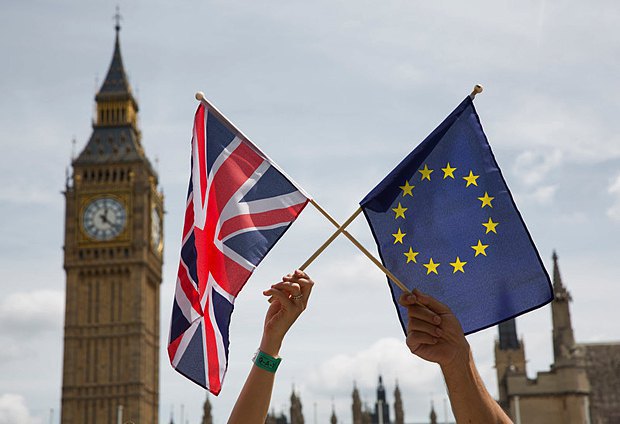
When we came to the USA a week before election day, we recalled one episode. In June 2016 our colleagues and I discussed possible consequences the UK's Brexit may have. Vadym Omelchenko, president of Gorshenin Institute, said then that the main consequence of Brexit would be Trump's election as US president. We were analysing the US using all available sources at the time and thought his idea was too unconventional.
Our groundwork hypothesis was formulated using the broadest possible range of political technologies, media reports and expert conclusions. The hypothesis said that inexperienced and emotional Trump will be "milled" by the giant and well-oiled machine of the Democratic HQ, and that, regardless of his electoral ratings, Trump has no chance with the electoral college. It was not until the mid-summer that some experts and media began to compare Brexit and the American election, and Donald Trump put Brexit into the spotlight of his election campaign.
That brainstorming session at Gorshenin Institute did not touch upon the influence of the British agenda on the US election campaign, rather it discussed the existence of a global trend, and public demand, which was first exposed in the UK during the referendum on EU membership.
Brexit also revealed one important feature: political analysis and forecasts, sociology, and political technologies did not take into account something important and deep that was actually happening in British society. After all, the Remain campaign was very active, it had great financing, top-level speakers, as well as the consensus of elites and the most active part of society around the idea of preserving the UK's EU registration. However, the idea of leaving the EU, which was reactionary, controversial and in many ways scandalous, received majority support. At least the majority of those who went to the polls on the day of the referendum. And this is one of the first parallels with the American situation, where the motivation, passion and even hate of the supporters of one candidate turned out to be stronger than the inertia of Obama's presidential tenure.
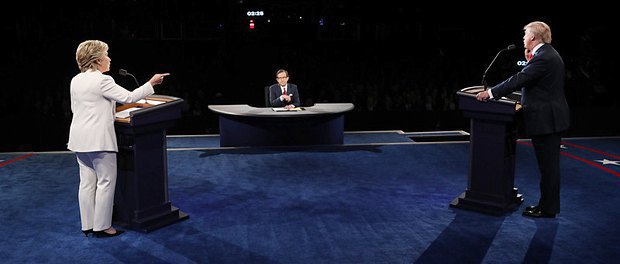
What happened in the USA in these last days?
Conclusion 1. Sociological figures, which showed the growing rating of Trump two weeks before the election and even some of his leading positions a week before the day of voting, still did not take into account those voters who stubbornly kept their choice a secret until the last day, the so called shy trumpists. Amid the parity in the rankings, which had been observed for a few weeks before the election, this group of voters actually proved wrong the majority of forecasts, which cautiously predicted the victory of Hillary Clinton. We have observed a similar phenomenon on many occasions in Ukraine, and we call it "the phenomenon of Tymoshenko".
Conclusion 2. Turnout. Even though Clinton won the ground game, Trump's supporters ensured better turnout at polling stations. On election day, we saw studies saying that 17 per cent of American voters communicated with Democratic canvassers and volunteers during the last months of the campaign. And only 8 per cent said they had a similar experience with Trump's campaign brigades. There were 9 per cent who said they were in contact with representatives of both campaigns. Even these figures show that the Clinton ground campaign was designed in a much better way from the organizational point of view.
While in the United States, we have visited several states, including Virginia and Pennsylvania, where Trump had no network at all, while the Democrats cast out their network on an unprecedented scale. However, the impulse that Trump gave his constituents, especially on the eve of the vote, overpowered the mobilization work carried out by the Clinton campaign on the ground. This was this impulse that predetermined the high turnout of his supporters on election day.
Conclusion 3. The political technology formula, which has become an axiom in the USA in the recent years, that demography decides the outcome of the presidential election was disproved. Hillary Clinton's strategy was clear: balanced targeted messages, which were aimed at specific target audiences divided by race, age, gender and social status, had to ensure the desired effect. But the key to victory in the presidential election, according to the strategists of Hillary Clinton, was the demographic factor.
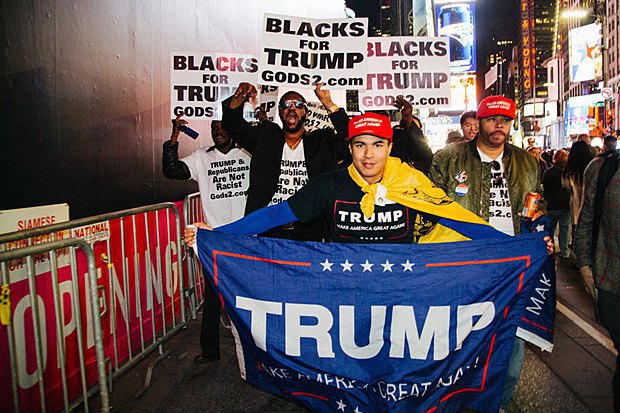
Since 1966, the share of white voters has declined steadily on the whole by 3-4 per cent at every US presidential election, that is every four years. This trend resulted in the so-called demographic shift in the United States which American political scientists have recorded in the second half of the 2000s. From that moment on one could say that the outcome of the presidential election in the USA can be determined using the formula "the sum of minorities gives the majority". Together with the US public demand for change, this formula ensured Barack Obama's confident win in the 2008 election and largely enabled him to retain the White House in 2012. And this is a key moment in the analysis of what happened. First, the request for change has become common for completely different demographic groups (although in different proportions), and, second, this resulted in Hillary Clinton's failure to win the war for the change agenda.
Gorshenin Institute's team visited Trump's several campaign events during the last week before the election. At each of these events, we did not lose time and communicated a lot with ordinary people, the regular audience of campaign events. This communication has become the best possible shot against stereotypes for us.
It is important to say that the image of Trump's typical voter, as seen in Ukraine, has been largely formed under the influence of the agenda imposed by Hillary Clinton's staff in the American media and thus in the world media. It is important to note that both campaign staffs worked towards the conflict and confrontation. Highlighting Donald Trump's certain personal traits, Clinton's HQ formed the flawed image not only of him as a candidate, but of his supporters, which largely pushed a large part of them into the shadow and consolidated them. During our impromptu focus groups, we often heard a number of theses. One of them is:
Obama failed his mission to implement the necessary changes in the country and gave up on a large number of his campaign promises.
Many people in Ukraine will be surprised to learn that among Trump's active supporters, we met many people who voted for Barack Obama in 2008. During his last campaign speech in the state of Michigan, Donald Trump said something that completely reflected one of the main promises of his campaign: "America needs real change, rather than changes in the interpretation of Obama." Naturally, when the question is worded like this, which had a huge response, it would be extremely difficult for Hillary Clinton's message to win.
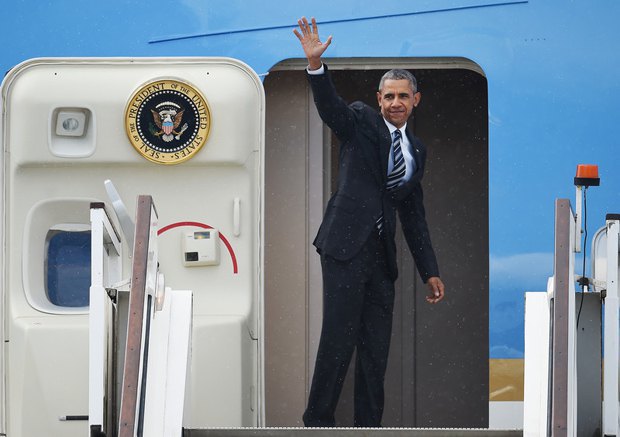
It is important that, according to various sociological reports, about 60 per cent of Americans on the eve of the election believed that the country was moving in the wrong direction. Many looked at Obama's approval rating, which stood at 58 -59 per cent, which did not reflect the real attitude to the situation in the country, but rather reflected the high antiratings of the two main US presidential candidates. The agenda of the US presidential election campaign was not about keeping Obama's course but about disappointment with this course as well as anger and hate caused by the following factor:
Protest against the growing gap between the US elites and a huge part of the American society which has always been the driving force behind the US economy and a major taxpayer.
Moreover, one of our interlocutors, a long-time Democratic Party strategist who has not been involved with Clinton's HQ at this election, shared his observations with us. The core group of Trump included white men who did not go to high school. This social group has suffered the most as a result of the reforms launched by Obama. According to various estimates, about 25 per cent of this social group became losers during Obama's presidency: they either lost their jobs or their social or material status festered, and they lost any prospect for the future. It is this group of voters, as well as their family members, members of their social network, were the most motivated and active during the last election. They were the first who Donald Trump got through to. To be more accurate, Trump managed to lead their revolt.
It will be important to say that the thesis that Trump has saddled the populist trend at this US election is fundamentally wrong. More precisely - one-sided.
In the eyes of a great part of American voters, it is Hillary Clinton who embodies populism, who bets on the idea of equality, regardless of the contribution of each individual citizen to the cause of the country's development. In fact, this agenda was a fiasco, as the motivation of the part of society opposed to Clinton's ideas proved stronger.
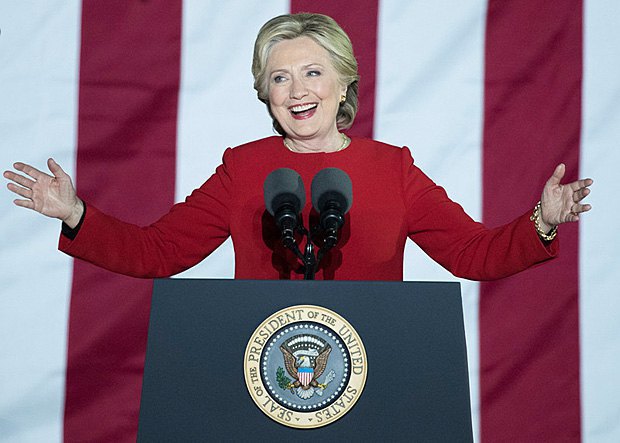
Under the fiasco, we mean primarily the loss of a huge advantage over Trump that Clinton has had over the entire past year. Despite the actually equal number of votes on a national scale, Trump's leap in the last months of the campaign is the most interesting thing that happened in the recent history of American elections.
Having attended Donald Trump's events and compared them with the election activity of Clinton, we have finally formed an opinion that Trump was going to win this election. Sometimes it is useful to go beyond the framework of professional stereotypes, sociological estimates, analytical reports and information field, and do a reality check and feel the emotion. Forget about the notorious representativeness. What we saw at Trump's events - the passion and motivation of his voters (without show biz celebrities, without the star couple of Barack and Michelle Obama) – was no match to the atmosphere at Clinton's rallies. It was absolutely clear that Trump's voters would not only go to the polls, but would also bring 10 others along. In US election terms, this means victory when it comes to "get out the vote".
Trump benefitted from sociological trends, according to which his ranking gradually, but steadily grew throughout the election campaign. This kept his voters charged and mobilized, while Clinton's voters, who may well have the quantitative advantage the USA, were notably demotivated by their candidate's high regards by the media, which eventually a cruel joke with Clinton, especially in a number of key states.
This election has disproved a huge number of stereotypes rooted in the political class and professional community of political consultants and analysts.
First of all, it concerns the blind faith that such factors as the consensus of elites, financial advantage, more efficient network structure, and overwhelming media coverage can guarantee victory. When there are sincerity and passion on the opposite side, they can defeat even such strong resources.
Let us remind you another important figure: American sociological studies in which respondents were asked to name the strongest sides of both presidential candidates, Trump traditionally was far ahead of Clinton in the component "he/she truly believes in what he/she says". Although Clinton was always ahead of Trump in such components as "civil service experience", "preparedness for presidency", etc., but the factor of sincerity has always been on his side. And often this was mentioned by Democrat supporters. And this is not a new trend. These are the basics of public policy, which were largely forgotten under the influence of technology and modern political practices.
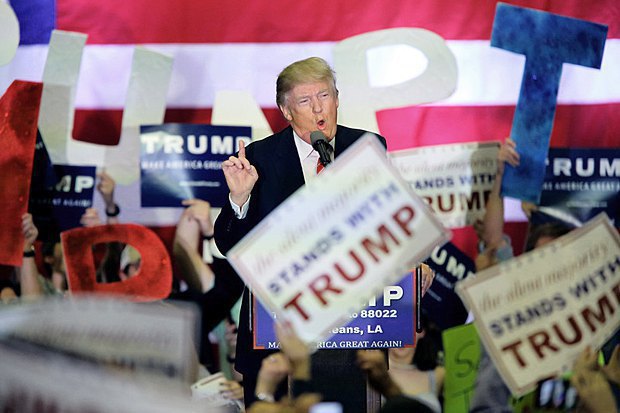
Of course, many in Ukraine today are concerned about the results of the US election. We would like to urge you once again to pay attention to one of the main terms of this article, the term "stereotype".
It is also worth considering through which prism and filters the Ukrainian audience perceived this election. Who shaped our attitude to the main actors of this race and the situation in general? In Washington yesterday, we met Republican Saul Anuzis, the campaign strategist of Ted Cruz and former chairman of the Republican Party in Michigan, who is absolutely convinced that the Ukrainians are very fortunate that America has made this choice. He was extremely surprised to learn about Ukrainian stereotypes regarding the US election. By the way, the state of Michigan, which has the largest number of Americans of Ukrainian origin, voted for Donald Trump. According to our interlocutor, Michigan's Ukrainians played an important role. This fact is also a good food for thought.
In conclusion, we would like to quote here the words of another person we talked to during the election night: "Both here and in Washington, the elites worked to preserve the status quo and tried to sell the idea of keeping this status quo to America. Think, was your attitude towards this election formed by the same public figures, both in Ukraine and in the USA, - politicians, experts and journalists - who were also interested in preserving this status quo whose beneficiaries they were in the recent years? And then maybe you will see Trump's presidency as an opportunity, which it actually is."
If you have found our observations interesting, check our follow-ups on LB.ua. Upon our return, we will publish a detailed analysis of the causes and consequences of Donald Trump's election for the USA and the global community.








